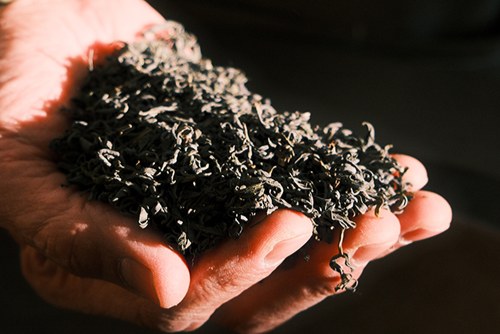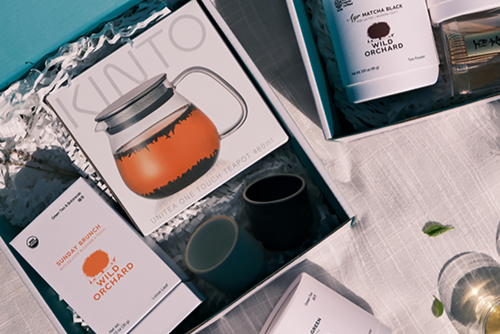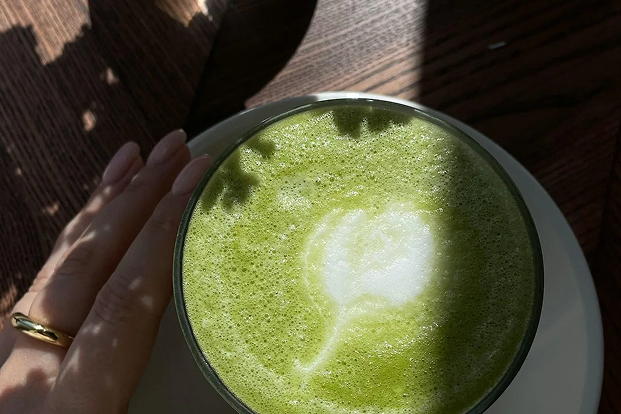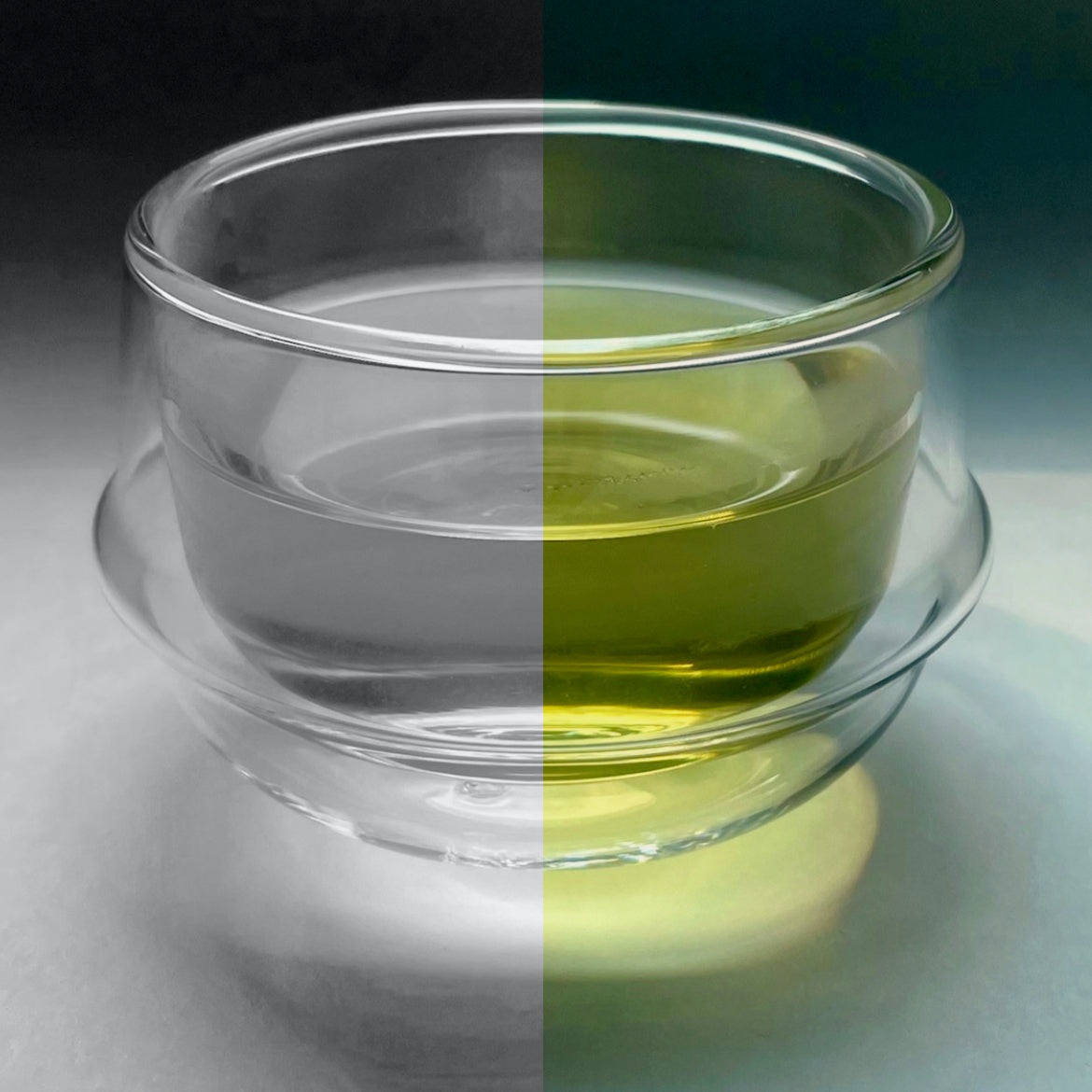In our last post, we covered Regenerative Agriculture, what it is and why it matters. Today we get into how it is directly reflected in our teas.
*Photo above: Wild deer amidst green tea trees & other native plants on Wild Orchard's island farm.
Wild Orchard teas have been grown regeneratively since long before the term "regenerative agriculture" became widely known. As we learned how the tea trees were planted and grown on our unique farm, we came to understand just how thoroughly they were protected from compromising practices, grown in nurtured soil and encouraged to be taken over by nature as much as possible—all at the hands of farmers who deeply cared and knew the value of these practices. As it turns out, this is the very definition of regenerative agriculture. Our farmers understood the only way to produce a truly good, clean tea was through nature at its best.
The Terrain
The land on Wild Orchard's farm did not start off ideal for growing tea trees. The soil had not been properly cultivated for growing crops, thus was not suitable for Camellia sinensis-sinensis to thrive. The land was also covered in weeds and an overwhelming number of giant rocks, all together making planting tea trees a daunting project. But the farmers saw that the island itself was an incredible environment with its salinic mist from the surrounding ocean, constant circulating winds, frequent temperate rainfalls, mineral-rich soil from the native volcanic rocks, and abundant wildlife. It was just a matter of putting in the hard labor of getting rid of all the boulders and weeds, and moving forward with a strong, clear vision.
The Seed
When tea trees are uprooted from their original soil and replanted in an entirely new environment, they can experience shock and struggle to acclimate, rendering them weak. Wild Orchard’s tea farm was started by planting organic seeds harvested from its organic sister farm on the mainland. The farmers knew growing the tea trees from the seed up was the first essential step in producing the strongest, healthiest plants possible. Being born native to the island meant the plants did not experience acclimation shock, and also grew extremely deep roots (tea plants, like many other crops, develop much deeper roots when grown from seeds planted directly in the land rather than from transplants). This enabled the trees to better absorb nutrients from the rich island soil, and in turn, their robust root system further enriched the soil.

Perennial Power
All of Wild Orchard's teas come from the plant Camellia sinensis var. sinensis, which is a perennial evergreen. This means they grow and bloom year after year and stay green even through winter (e.g. pine trees, junipers, gardenias). Annuals only live for one season, and then die off (e.g. peas, wheat, tomatoes). Many hardworking farmers who plant annual crops each year have found ways to do it without repeatedly plowing or using chemical herbicides. Yet, perennials inherently do not require yearly plowing or herbicides since they are only planted once and live for at least several years (or in the case of Camellia sinensis-sinensis, at least 30 years). Because perennials stay rooted, they constantly release carbohydrates into the soil for the microbiota to feed on (except during their dormant periods once a year). This process produces a more nutrient-dense soil. Meanwhile, the part of the plant that’s above-ground keeps the topsoil covered from overexposure to wind, sun and water, preventing erosion and nutrient loss (visit our last blog post to learn more about this). The topsoil on our farm is further protected by a variety of wild plants that grow in between the tea trees throughout the fields; and any remaining areas are covered using leftover tea tree pieces from harvesting, scrap leaves and twigs that are unsuitable for tea, and seed remnants.
Goose Grazing
Over time, Wild Orchard's tea plants were allowed to grow alongside weeds and other wild plants in order to build up a tough yet synergistic constitution. But during their first few years when they were still a bit delicate, they needed some protection from being choked out by the weeds. At the time, geese were being organically raised near the tea plants. One day the farmers noticed that when the geese wandered through the tea fields, they would eat the sprouting weeds while leaving the green tea plants untouched. Furthermore, the geese would also poop while wandering and grazing, which naturally fertilized the soil. They were a completely organic and chemical-free contribution to maintaining the weeds under control and enriching the soil. Of course this was not without its challenges. While grazing and wandering through the fields, the geese would sometimes trample over the young green tea plants and create muddy pockets where tea plants could no longer grow. Fortunately, as the tea trees grew stronger and were eventually able to thrive alongside the weeds, the geese were relieved of their weeding duties which resolved the trampling issue. But this was all part of the constantly sprouting challenges the farmers persevered through in order to sustain the land as naturally as possible.

As the tea trees continued to thrive among the weeds, native plants, other perennial trees, the soil grew intensely richer and healthier. This attracted even more organic life, like insects and native wild animals (e.g. egrets, hawks, deer, rabbits, lizards, and many more), each contributing to and benefiting from the growing ecosystem.

20 Years Untouched
Our farmers started their tea farm with more challenges and questions than answers. Perhaps the most important and difficult challenge was that once the tea seeds were planted and began to grow, the farmers had to leave them largely untouched for as long as possible. This turned out to be 20 years. During that time, their labor centered on protecting and preserving the green tea trees rather than adding manmade inputs in order to maximize production. In other words, in order to create the incredible teas Wild Orchard presents today, the farmers devoted themselves to developing the purest, healthiest tea plants they could by protecting them and surrounding them with the best of nature—and then staying out of the way.
Today the tea trees continue to thrive, and many of them are now exceptionally tall and overgrown, creating a kind of "green tea forest."
Since the beginning of the farm to this day, the farm has no manmade irrigation system because the tea trees are plentifully watered by the island's natural rainfall and constant mist from the surrounding ocean. The soil is fertilized purely by leftover tea tree scraps—nothing else. Wild native animals and insects are seen throughout the tea fields every day, which our farmers continue to share with us through photographs, video clips and stories. When Wild Orchard became the farm's exclusive international distributor, we knew we needed a name that would simply and correctly reflect what made this tea so special. We wanted it to be felt that this tea was not only organically and regeneratively grown by uncompromising standards, but also entrusted to nature for decades until it became, in a word, wild.

Wild silvergrass growing amidst the tea plants on our tea farm
Whether a farm has just taken the first steps or is further along the regenerative journey, it's all part of the overall effort to grow food that is truly healthy and nourishing, and that helps to regenerate the earth from the damage that's been done to it. And, we believe there is always room for improvement. Wild Orchard and our farm continue to strive for better understanding and practices, and welcome opportunities to work with likeminded people in order to improve and support regenerative organic farming everywhere.
20 Years Untouched?
If you're still not sure how to gauge the value of leaving something to nature for decades, what it can actually do, check out this 7-minute video segment narrated by David Attenborough!
Now what?
Interested in drinking teas that regenerate you and the planet? Check out some of our favorites: Early Spring, Matcha Green and Sunday Brunch.







Leave a comment
This site is protected by hCaptcha and the hCaptcha Privacy Policy and Terms of Service apply.